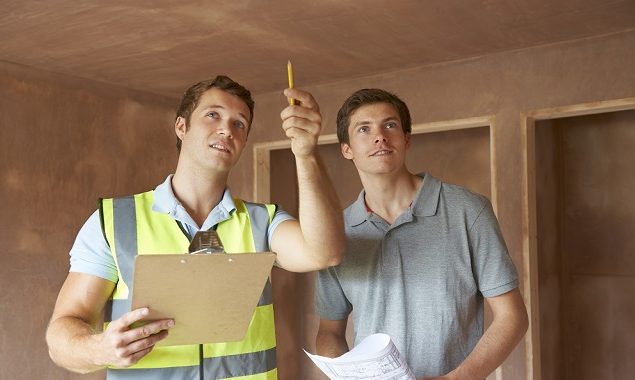
Home inspections are typically a good idea when purchasing a home. Why? They can make the homebuyer aware of any potential issues with a home so they can make an informed decision about whether or not to go through with the purchase. These issues may be things that the homebuyer sees, but doesn’t really understand the extent or costs of repairs to fix them, or they could be things that the homebuyer simply can’t see just from walking through the home.
Not only will a home inspector closely examine the major systems in a home – such as electrical, plumbing and heating – to make sure they are working properly, they will also go into places where the typical homebuyer might not want to venture – like crawl spaces and attics.
Here are six common questions and answers you may have about home inspections:
1-Do banks require home inspections?
Banks do not typically require home inspections. However, they do require home appraisals to verify the value of a home prior to lending the money the homebuyer needs to purchase it. The cost of the appraisal is typically included in the buyer’s costs at closing.
2-Who pays for a home inspection?
The buyer usually pays for a home inspection. The buyer should also choose their own inspector or rely on their real estate agent for recommendations. It’s usually not a good idea to rely on a home inspection the seller provides.
3-How much does a home inspection cost?
Home inspections typically range from $200 to $600, with most falling somewhere in the middle, but they may be higher. The costs may vary depending on the area where the home is located, the size of the home, the age of the home, the experience level of the inspector, and the distance he or she has to travel to get to the home to do the inspection.
4-Should the homebuyer be at the home inspection?
Yes, it’s a good idea for the homebuyer be at the home inspection if possible so that the inspector can actually show them things he finds and provide more details than what he may include in his report. If the buyer can’t be at the inspection, they should ask their real estate agent to be there to represent them.
5-What happens if something goes wrong in the house after the inspection?
Most sales contracts will require that the seller keep the house in the same condition that it was in when the home was inspected until the closing. Therefore, if something happens that requires repairs after the home inspection, the seller is usually responsible for fixing it.
6-Who is responsible if a home inspector misses something?
It’s a good idea to clarify this up front if you’re the homebuyer. Sometimes existing problems may not come to light until you’ve moved into the home, or even months later. If a problem comes to light that you believe existed at the time of the inspection, you should call the inspector immediately and make him aware. If the issue wasn’t mentioned in the inspection report, the inspector may offer to pay to have the issue fixed or refund their inspection fee, and if it’s a major issue, you may have recourse through the inspector’s errors and omissions insurance.
Lakeside Title Streamlines Real Estate Transactions
Lakeside Title Company provides title insurance and numerous title services carefully designed to streamline residential and commercial real estate transactions for lenders, realtors, buyers and sellers. To learn more about our comprehensive title-related services, give us a call at 410-992-1070. We look forward to the chance to serve you!




